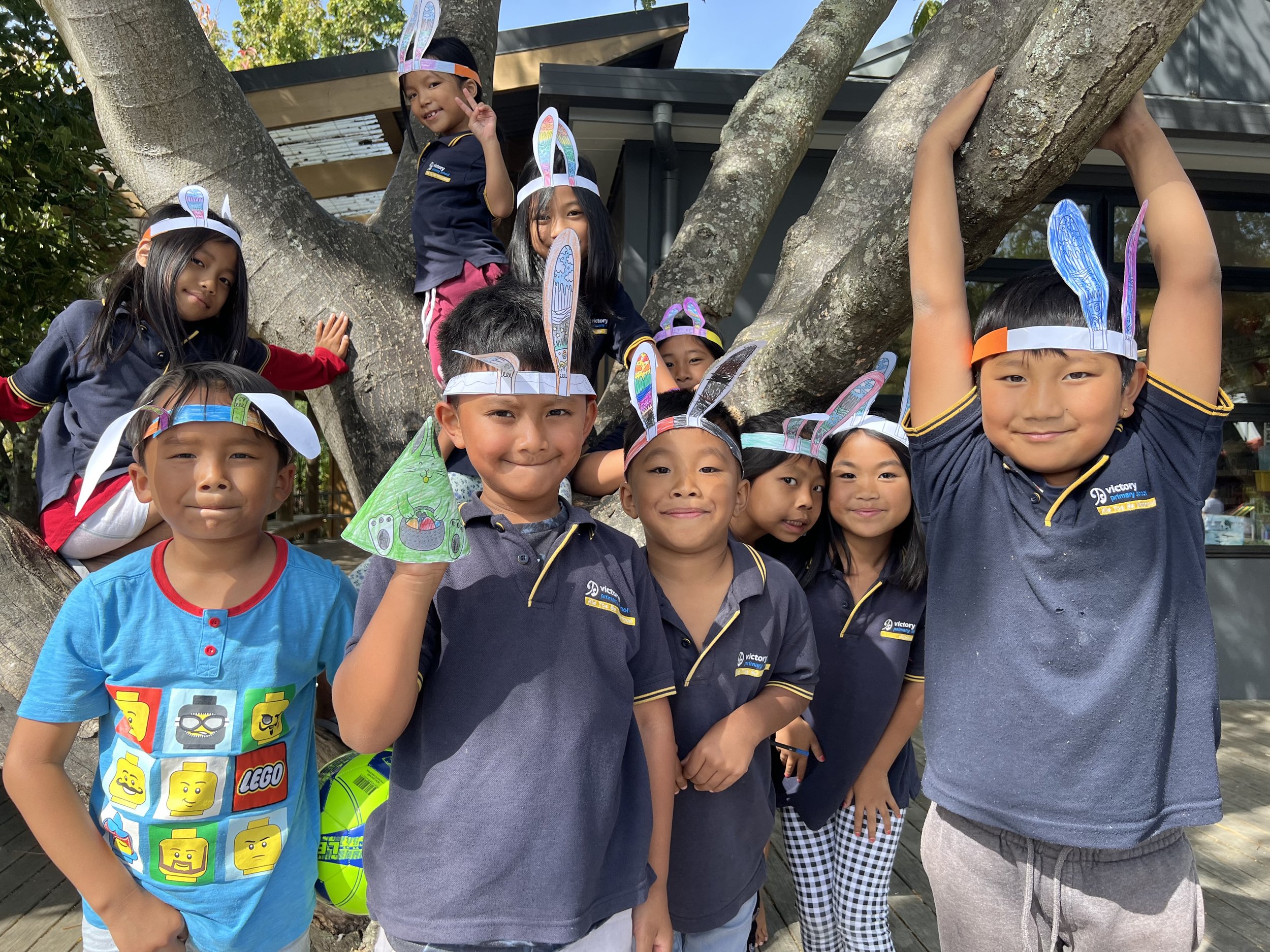
Learning Support
At Victory Primary School we pride ourselves on providing the necessary learning support to allow all tamariki the chance to engage in learning as a positive experience that benefits their well-being.
We provide learning support using a strength-based philosophy and we have a fantastic learning support team led by a specialist Learning Support Coordinator and senior leaders. The child is at the centre of all we do and we tailor our approach in conjunction with whānau to cater for a diverse range of needs, including neurodiversity, social and emotional needs, English Language Learners, and ensuring children are learning at the level that suits them (both extending and supporting learning).
Learning Support Initiatives
Our learning support team consists of 15 kaiāwhina / teacher’s aides, who provide in-class support for tamariki, and 8 bilingual support liaisons, who provide support for tamariki and whānau that speak Chin Hakha, Burmese, Karenni, Spanish, Nepali, Hindi, Urdu, Samoan, and Cook Island Māori.
We also have additional support from our SWiS (Social Worker in Schools) and other outside agencies such as RTLB (Resource Teachers of Learning and Behaviour), RTLit (Resource Teachers of Literacy), and RTM (Resource Teachers of Māori) to assist us in providing the best possible education for all our children. Some of the specific student support initiatives that we have in place include:
-
Reading Recovery is a proven early intervention for literacy learning. It is designed to help young readers and writers catch up with their classmates through intensive one-to-one support. Early Literacy Support builds on the knowledge and expertise of Reading Recovery teachers to provide targeted and personalised support for 5 year-old children in small groups in the classroom. Together, this collaborative approach enables schools to strengthen early literacy, and grow confident readers and writers.
-
This programme gives children the opportunity to interact and care for dogs at school while developing key attributes such as empathy, manaakitanga, responsibility, rangatiratanga, confidence, emotional regulation, caring for others, leadership, and whanaungatanga.
-
This programme provides youth with a role model and a friend to talk to and share the experiences of growing up within school grounds. For one hour a week, for the duration of the school year, mentors meet with their mentee and engage in activities on school grounds.
-
Learning to read can be a stressful process for some children, not because they are not capable, but because they get nervous and self-conscious. This programme focuses on children who are having difficulty learning to read. When children read with a dog they start to relax and then they forget about being self-conscious or nervous because the dog is a non-judgemental, non-critical audience. Research has shown that children who read to animals are more relaxed with slower pulse and respiration rates, they are physically more relaxed, they are more likely to self-correct when reading words, and try words they are unfamiliar with. It is a simple concept that can produce great results.
-
Precision teaching is a structured teaching method that’s designed to improve the accuracy and fluency of reading, spelling and maths. The main goal of precision teaching is to help ensure that students become fluent and accurate in using their words. It aims to develop students’ reading and spelling skills naturally by using language more in their everyday learning.
-
Shine Girl Nelson is a personal development programme that aims to bring hope and purpose by helping girls recognise their strengths and the power of their choices.
-
LEGO® Based Therapy is a Social Skills Programme. It has proven to be an effective way to support children in developing their communication and social skills, increasing social interactions and social experiences as well as providing them skills to maintain friendships. The LEGO® Based Therapy programme uses children or young people’s interest in Lego® play and supports to develop their communication and social skills.

